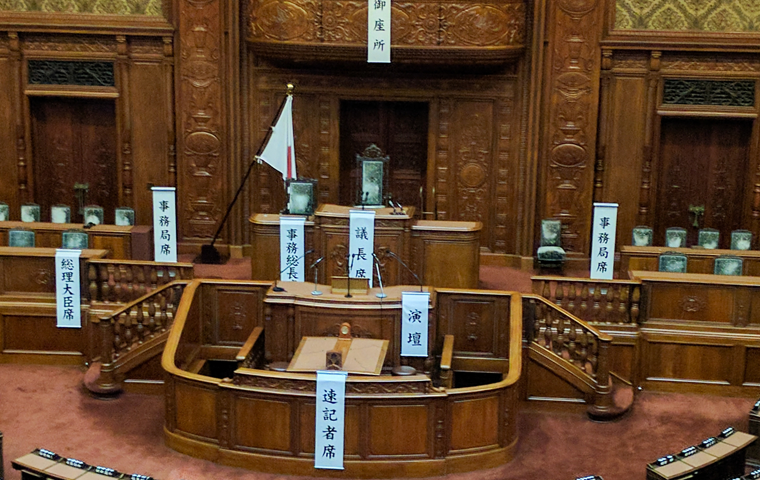The Geopolitics of Information Warfare: Decoding Russia’s Disinformation Strategy (#2)
Related Articles

Continued from #1
For Russia, Information Confrontation Is “Geopolitics”
Then, what is the Kremlin’s strategy that these operation activities stem from?
The Kremlin’s view on “information” differs greatly from that of the West. Russia’s national security strategy and military doctrines use the concept of “information confrontation” (Информационное противоборство, or informatsionnoe protivoborstvo). The Russian ministry of defense describes the information confrontation as “the clash of national interests and ideas,” where superiority is sought by targeting the adversary’s information infrastructure while protecting its own objects from similar influence.
The “confrontation” includes a significant psychological remit, whereby an actor attempts to affect informational resources as well as the minds of the adversary’s military personnel and population at large. And the “information space” defined by the Kremlin refers to the activities to form, transform, and store information, as well as influencing individual and public consciousness, information infrastructure, and information itself. Therefore, “information security” encompasses not only the protection of critical digital networks but society’s cognitive integrity as well.
The concept of “information weapons” used here is defined as “information technologies, means, and methods used for waging information war.” In practice, the concept covers an array of activities, often with an emphasis on affecting the human mind; this includes the spreading of disinformation, electronic warfare, psychological pressure, and the destruction of adversary computer capabilities. According to NATO’s 2021 analysis report on Russia’s strategy in cyberspace, the Kremlin sees the information confrontation as a constant geopolitical zero-sum competition between great powers, political and economic systems, and civilizations. It must be noted that, contrary to the Western view of interstate conflict based on the international legal order that distinguishes between war and peace, the Kremlin’s “information confrontation” is constant and ongoing.
These activities to influence the adversary’s political and military decision-making using non-military means are considered “influence operations.” With the use of social media, influence operations have become quick and low cost. It is combined with cyberattacks in peacetime, in the prelude to war, with no distinction between peacetime and wartime.

NATO classifies influence operations into the three main categories: Inform & Influence Operations (IIOs), Influence Cyber Operations (ICOs), and (Military) Information Operations (iOs). IIOs affect the public by sending out diverse messages, mainly spreading information on media and social media (mostly layer [1] mentioned above). ICOs are activities such as hacking in adversary countries to leak information or bring down websites or take over accounts for spreading disinformation (layer [2] above). (Military) iOs attempt to confuse military decision-making and seize the capacity of the adversary’s intelligence agency (layer [3] above). Figure 1 shows how these apply in the latest invasion of Ukraine.
How to Prepare for the Seamless Information Warfare
Is this information warfare by the Kremlin succeeding? Declassification of intelligence by various countries, fact-checking, and countering by Ukraine are achieving results, while the military information operations and the Kremlin’s narrative of the battle against the neo-Nazis have not convinced the global community. “Russia as the villain” vs. “ Ukraine & supporting Western countries as heroes of justice” is the prevalent view among international opinion. However, it is superficial to view the Kremlin’s influence operations as ineffective, because even in Japan, pro-Russian discourse can spread to a certain extent.
Analysis by the internet security company Sola.com and Fujio Toriumi, Professor at the University of Tokyo, revealed that the clusters that had been sending out messages resonating with QAnon, the U.S. right-wing conspiracy theorists, and misinformation on COVID vaccines, were spreading pro-Russia posts regarding the invasion of Ukraine. According to various studies, over 9 million posts stated, “there are U.S.-led biological weapons labs in Ukraine,” and the 228 posts claiming “the Ukraine government is neo-Nazi” were retweeted over 30,000 times by approximately 10,900 accounts. In the past, Russian accounts involved in spreading disinformation on the 2016 Brexit referendum were reused for the U.S. presidential election. It needs to be kept in mind that social media accounts with an affinity for the Kremlin’s narrative at present could affect Japan-Russia relations in the future.
Then, how can we deal with such information and cognition warfare?
Japan lags in countermeasures against disinformation during peacetime. It should start with the measures the Western countries have implemented, including “establish an information collection center to monitor and analyze foreign disinformation,” “revise the Public Offices Election Act and Act on Procedures for Amendment of the Constitution of Japan to restrict election interference by foreign states,” “designate election infrastructure as Critical Infrastructure to make elections subject to critical protection in cyber security,” “develop active cyber defense system against information manipulating cyberattacks by foreign states,” “develop a restriction system through government and platformer collaboration to prevent disinformation,” and “promote an environment for enhancing media literacy and fact-checking system to foster public awareness with resilience to foreign influence operations.” In February 2022, the Sasakawa Peace Foundation released a policy recommendation including the above measures, titled, “Prepare for Foreign Disinformation,” urging the government and officials to address the issue. Also, Western countries have shut out Russian state-sponsored media, including RT and Sputnik from social media. Although it is difficult to balance this with the freedom of speech, as a measure limited to contingencies, such a radical approach is worth considering.
In the battle of narrative, the first step is the analysis of the risks in the information environment, as NATO and other reports have pointed out. To prepare for information warfare, the Japanese need to review what narratives they have, and what narratives they are vulnerable to.
The invasion of Ukraine is not a fire on the opposite shore; Everyone should recognize they are constantly involved in the information and cognitive warfare and be fully prepared.
This is a translation of the Japanese article published in Vol. 73 (May/June 2022) of Gaiko (Diplomacy) magazine.
Tomoko Nagasako is a Research Fellow of Security Studies Program at the Sasakawa Peace Foundation. She earned double MAs from the Graduate School of Humanities and Sociology, the University of Tokyo and from the Graduate School of Information Security, Institute of Information Security. Her most recent work is, “Global Disinformation Campaigns and Legal Challenges,” International Cyber Security Law Review, Vol. 1. Springer.




